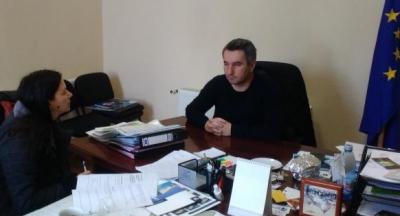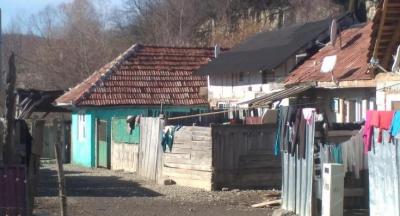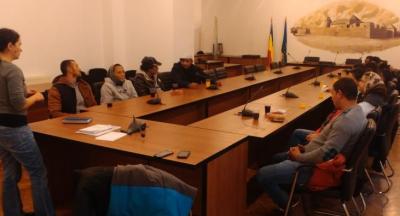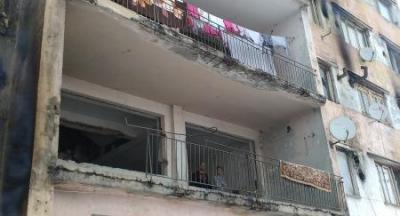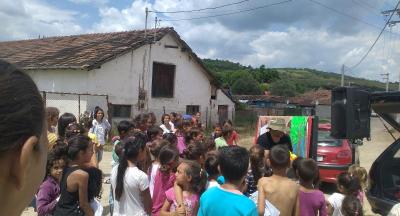Fagaras
*Disclaimer: The information and views set out in this page do not necessarily reflect the official opinion of the Council of Europe and/or the European Commission. Neither the Council of Europe, the European Commission nor any person acting on their behalf may be held responsible for the use which may be made of the information contained therein.
Last update: 12/01/2017
Fagaras municipality (Fogarasch/ Fugreschmarkt/ Fogaras) is a municipality situated in central Romania, in Brașov County. Fagaras has a population of 40.197 as of 2011 Census. The main ethnics groups are Roma, Hungarians and Germans. The city's economy was badly shaken by the disappearance of most of its industries following the Revolution, critical hardships, and reforms. There are two major communities in Fagaras City and other 4 small communities (Salcamuluui, Negoiu, 13 Decembrie, Andrei Muresanu). Both major Roma communities is settled at the margin of the city, in Galati Neighborhood and Combinat Neighborhood, marginalized communities with around 1.800 citizens (according with local leaders). In the other 4 communities are around 450 people.
The main problems are: lack of infrastructure (sewage, plumbing, lightning, and streets), lack of education (about 16% dropout, low level of education for employment), health problems (no medical cabinet in the community or no pharmacy), lack of property and ID documents, and high rate of unemployment. From 2016, there is an elected Roma councilor in Fagaras Local Council, the first one in the history of this City.
The ROMACT Process
ROMACT process started on October 2016. The Local Action Plan for Roma was approved by the Local Council on December 20, 2017.
The Community Action Group (CAG) identified its short/medium/long-term needs:
| Short and mid-term priorities | Objective 1 | Objective 2 | Objective 3 |
|---|---|---|---|
| Education | Setting up a school psychologist and 2 school mediator positions | Schools repairing, new furniture and equipment | Summer school programs for children from marginalized families |
| Culture | Organizing and financing cultural events with Roma specific inspiration | Organizing events to promote Roma traditions, customs, songs and games | Publishing and disseminating specific materials on the Roma history and traditions |
| Health | Providing services for disinsection, pest control, disinfection | Establishing two school medical offices for pupils in Roma neighborhood and hiring a school doctor | Vaccination campaigns/ health education programs |
| Long-term priorities | Objective 1 | Objective 2 | Objective 3 |
|---|---|---|---|
| Infrastructure | Making operational a local joint transport line linking the Roma district to the city center (for transporting students) | Setting up / rehabilitation of playgrounds in Roma communities | Modernization / extension of the public streets and public lighting, connection to the water and sewerage network |
| Housing | The rehabilitation of the dwellings owned by the municipality and which are rented to Roma families (roof rehabilitation, thermal insulation, interior design) | Providing property and housing registration documents | Construction of social housing blocks |
| Employment | Support the process of developing competences for young people in the process of qualification, employment, skills development | Achieving the process of providing support for the apprenticeship / dual school process for 150 Roma youth - mentoring program | |
| Education | Organizing contests, extracurricular activities, extra curricula and school camps to facilitate children and students from Roma community | Implement complementary support programs for school dropout prevention in Roma neighborhoods | Developing School-after-School and Second-Chance programs |
| Other | Establishing 8 local police officers for the Roma community | Refurbishment of domestic waste collection and storage platforms in the area of Roma communities | Solving stray dogs issue |
With ROMACT expertise, the city hall applied for European funding and received help to implement projects related to reducing the number of marginalized communities at risk of poverty and social exclusion through integrated measures.
Several trainings were also provided:
- For the local administration employees: EU funds accessing.
- For the community action group members: information regarding government funding, training on community development and civic participation etc.
Activities involving the community action group:
Training on community development and civic participation
Information regarding government funding
So far, the following measures to solve problems in Roma community were taken:
- 1. Rehabilitating the drinking water distribution facility in Combinat District
- 2. Repairing the roofs of the buildings in Combinat District
- 3. A school mediator was hired
- 4. A health mediator was hired
- 5. The Local Council approved the establishment of a police station with 8 persons to work in the Roma communities
The Municipality benefited of ROMACT expertise for the following project:
* “Integrated measures dedicated to the marginalized areas Combinat and Galati from Fagaras”, OPHC 4.1
Status: rejected

